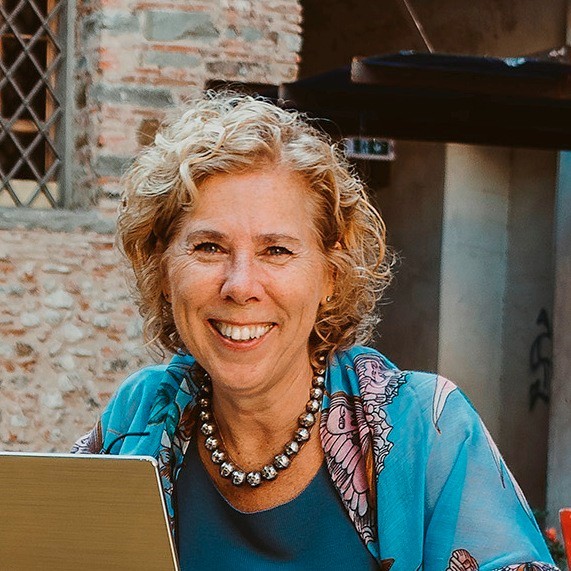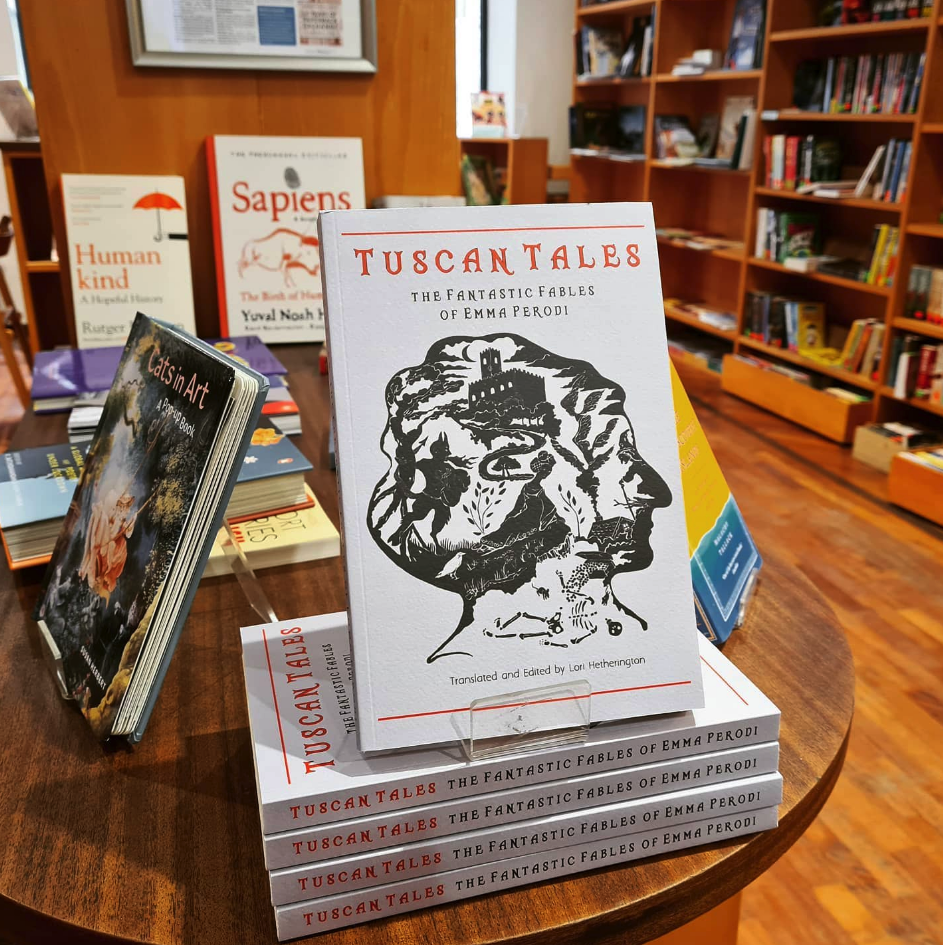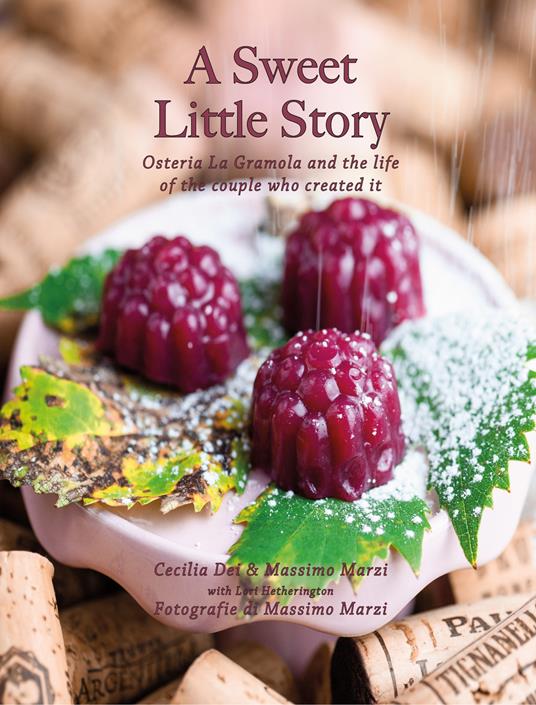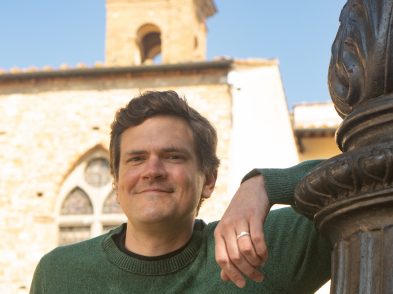South of the river, west of the Pitti Palace and the Boboli Gardens you will find the Santarosa Bistrot, a bar and restaurant with spacious outdoor seating in a leafy garden, popular with early-morning dog walkers and locals. It’s my chosen meeting place to talk about languages and life with writer and translator Lori Hetherington.
Lori moved to a very different Italy back in 1986, spending a year in Lucca before heading to Florence. Since then she has authored and translated a number of books, including Tuscan Tales: The Fantastic Fables of Emma Perodi. She also organises a vibrant writing community. I’m curious to hear her experience of emigrating in a pre-internet era.

Society was much more homogeneous because this was prior to changes within Europe,” she reflects. “There had not been a big influx of people from other countries and it was very, very traditional at that time. It has been fascinating to watch Florence and Italy as it’s grown.
When Lori first arrived she didn’t speak Italian, but learnt fast. “I had studied Spanish and French at school, so I was able to read a lot of things. I made a lot of linguistic mistakes. It was hard at first, but it was exotic and different. It was exactly what I needed in my life at that moment.”
Unlike many foreigners, Lori never took Italian lessons. “I read newspapers, magazines. I had people around me who corrected me. Neighbours or colleagues at the school where I was teaching English. I watched television 24 hours a day, and I dislike television. For the first six to eight months, I had a headache every day. I got anxious every time the phone would ring.”
While challenging, language learning must have been more of a necessity back then. Lori replies: “Yes, it was full immersion. It was extra hard and lots of people left. It was too hard to find a job, to make friends.” She reflects on the difference now. “Back in the ‘80s, there weren’t as many American and foreign universities. When you did come across someone who spoke English, it was like finding a gem! Now, English has become much more prevalent.”
Talking with Lori, I realise that the ease of modern life can lead us into complacency with language learning, and if we don’t immerse ourselves we are missing out.
The ease with which people can come and function without having to interact with the local community in my opinion is not a positive thing. They are really missing out on so many aspects of local life. My son says, ‘I’m Florentine, my mother is American, but I’m Florentine’. He plays calcio storico, for the Bianchi. These are the traditions that people miss if they don’t interact with the local community.
Bilingual professionals in the community like Lori can help ensure we don’t miss out on Italian life. “I see myself as a bridge connecting the English-speaking world with the Italian-speaking world. You know some people see themselves as the hero, some people see themselves as the victim, some people see themselves as the diva. Being a bridge is very suited to this lifestyle.”
Lori’s adaptation of Emma Perodi’s fairy tales is one book that bridges the gap between the Italian and English worlds, and allows us to uncover a Tuscan treasure. The book adapts the 500-page volume, which is narrated by Nonna Regina who lives with her family in Tuscany. “You get a taste of the fairy tales. They are dark and gothic. The devil is all over the place, there are saints and there are medieval historical facts, places and people. You get a flavour of those and you also get the chance to follow the family within the space of a year, in their ancestral home in the hills.”


Another local project is the cookbook/memoir Una Piccola Storia Dolce (A Sweet Little Story), which she worked on with a family restaurant, Osteria La Gramola, in Tavarnelle. “They wanted to do something to mark their 30-year anniversary, so they asked me to tell their story along with some of their recipes. It was an enjoyable project as they are lovely people and have a real passion for what they do and where they live. It was a lot of fun to feel their passion and try to put that on the page.”
I ask Lori if she has any advice for foreigners like me who can get a little complacent learning the language in our modern times.
I would say, don’t hang out all the time with your English-speaking friends. Dive in. Make mistakes. People will appreciate your efforts. Join a gym or some activity that’s happening in your neighbourhood. Go to the open air market, always go to the same guy who sells fruit and vegetables. He will remember you because you are a foreigner, you’re not the same Francesca or Signora Maria. You’re different, so use that difference in a positive way.
I say goodbye to Lori and leave the bistro, feeling inspired to start learning the Italian language like it’s 1986. As I take the 40-minute walk to piazza Ferrucci, past the bridges along the way, navigating the crowds past the Ponte Vecchio, I’m beginning to see that there is a way to leave that English comfort blanket behind, and cross over into Italian life.







